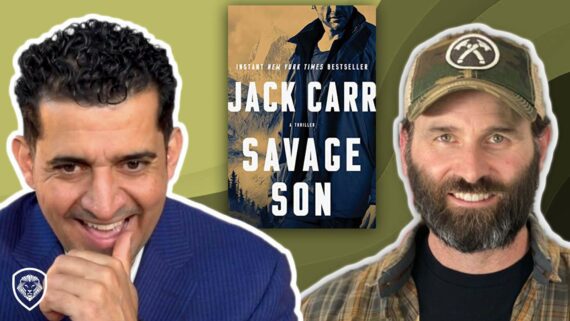14 Common Negotiation Mistakes
No matter what you do in life, you’re always negotiating. Whether you’re dealing with your boyfriend, girlfriend, husband, wife, kids, boss, parents, family, cousins, it doesn’t matter. You’re always negotiating, so the sooner you become a better negotiator, and learn the mistakes you’re making, the better results you’ll start getting when it comes down to negotiating. Today, I’m going to talk to you about the 14 common mistakes people make when it comes down to negotiating. Now there’s a lot more out there. I’m just giving you 14 of them.
- Letting your emotions get in the way when you’re negotiating.
Let me explain what I mean by this. It doesn’t matter what it is, if a parent goes to school and is talking to a principal because their kid did something wrong, the parent always thinks their kids are perfect, and they don’t make mistakes, because it’s their product. The same when you’re selling a house to somebody else, you always think your house is worth more than it really is because it’s your house. You’ve been living in it for eight years, nine years.
The market would generally tell you what your house is worth, what you car is worth, whatever you’re selling. You got to figure out a way to put yourself out of the situation and kind of be a consultant looking in, instead of being somebody that’s involved emotionally in it where you don’t typically end up negotiating the proper way. You can’t just let your emotions get into … Especially if the other person says, “I think this thing’s only worth $4,000.” You think it’s $10,000, you’re absolutely furious. You may lose a deal there, and you got to kind of figure out a way what it is.
- Misinterpretation of position.
This if very important, because sometimes you’re talking to somebody, and they say something, and you get upset. They didn’t mean what you thought they meant. Instead of getting upset, ask two, or three, or four more questions, probing questions to ask them what they mean by this. “Do you mean this? Do you mean this?” “That’s not at all what I’m saying. I’m saying this because of this.” “Oh, I didn’t even think about that.” “Okay, no problem.”
A lot of times, deals don’t go through because there’s not enough questions being asked, because the two parties negotiating misinterpreted each other. All right, so you you got to make sure you got a lot more questions there so this doesn’t happen.
- Research, research, research.
Do as much research as you can. Let me give you a story here. We had a case where somebody contacted us. They wanted me to be in this documentary, and “Oh, this documentary is going to have a Buddha in it, and Tony Rob …” All this stuff. It sounded so fancy, and we want you to be an associate producer, and we’re standing there saying, “Wow this is pretty exciting. This is something that maybe we’ll entertain, want to be a part of,” until we found out that the executive producer that was a part of it had, had a major, major scandal, New York Times type of scandal, that he was dealing with, from a relationship with a younger girl. All this other stuff. The moment we found out, we backed down. We said, “We’re not even doing any business with this.” We almost did. We almost did because we didn’t do research.
- Going to the source.
I like to go to the source. I remember a long time ago when I was getting contracts with insurance companies, and I was constantly talking to all these VPs, Vice Presidents. “Oh yeah, we’ll try to get a deal for you. Oh yeah, we’ll try to get a deal for you,” and all of a sudden I said, “You know what, I’m going straight to the source.” I found that every insurance company CEOs, I found that all of these guys are human beings, like you and I, they have a Linkedin, they have a contact information. They know people that have information that I know, so I reached out to them. Eventually I got ahold of the CEOs.
Direct phone. I spoke to them. I said, “Listen, here’s who I am. Here’s what I’m looking for. I’m looking for a contract. I just started a company. I like our company. When can we get together and talk?” “Can you come here tomorrow?” “Yes.” I flew to Chicago, struck up a deal with the CEO, came back. We had an insurance company to work with because I went directly to the source. Many times you got to go straight to the source.
Let me tell you what I mean by leverage. Leverage is knowing who has the leverage. I’ve seen people negotiate with people as if they have the power, and they don’t. Let me explain. Let’s just way me and and a bank are having a problem here together. The bank has given me $50 million for my business, okay? The bank is absolutely upset with me. We want our $50 million. We’ve given you $50 million and this is our $50 million. If they push me to the edge, I can file bankruptcy. They’ll lose $15 million. They need to understand leverage here. They need to make sure I stay in business, because if I stay in business, I can pay them back. That is leverage right there, so you need to know your position of leverage. Not just necessarily going in and pounding your fist on the table and saying, “This is what I demand from you.” If you don’t have proper leverage, it will work against you.
- Not listening.
It’s pretty simple. Sometimes the whole thing about misinterpretation, the more you listen, you’ll start seeing signs, and you’ll start seeing exactly what’s important to them, and you’ll start seeing what they’re not willing to negotiate with. That will help you get to the final decision sooner.
- Knowing when to walk away, and when not to walk away.
I will tell you from personal mistakes, I have sometimes walked away way too early, and it cost me millions of dollars. I have sometimes walked away too late, and it cost me a lot of hours. Okay? From experience, you generally make this thing tighter where you’ll be able to save more money, make more money, and save more time, and make more time to do other things. There are times where you’re into it, and you may not like somebody, or you may not like something that was said, but that doesn’t mean you’re not going to do business with them.
Unpeel it a little bit more, and all of a sudden, something could happen. There’s sometimes patience is important. Many time you can tell a deal and say, “Look, we were just doing a deal,” and I told the guy, “Listen, I want to do this deal, but I’m not going to do based on these guidelines. If you have something better, honestly go. I’m just here waiting. If you want to do some like this, I’m open.” Then we came back two months later, and we ended up doing a deal, because we were patient about it. You need to know your position where you are with that.
- Too extreme, too soft, too hard.
You push too hard, you’re too soft. If you’re too soft, you’re showing a weak position. Maybe your product’s not as good. If you’re too hard, maybe the other person says, “This person’s going to be difficult to do business with.” You to to kind of figure out a way to be balanced with them while you’re dealing with them.
- Understanding the personality.
I was doing a negotiation with this one guy. He’s $100 million guy two weeks ago. We’re on a call. He interrupts me, three times on a call. I don’t mind it, but he interrupts me three times. When he interrupted me three times, I interrupted him and I said, “Listen, I just hope your understand this. I have zero problem if you interrupt me. Okay? I hope you also don’t have a problem if I interrupt you.”
He said, “I have no problem with that.” Our relationship was so good because we both understood what level we’re comfortable and in negotiation went well. There are people that will not even interrupt you until you’re done with your sentence, and then you got to know they’re expecting the same thing in return. Sometimes you got to read personalities when you’re negotiating on where they’re at. Some people are more sensitive than others. When you’re dealing with more sensitive people, if you still want the deal to get done, you got to be able to read that other human being better.
- Letting people know how you do business.
I told this guy … Mario reminded me this yesterday, two days ago. He says, “Pat, you probably said this line hundreds of times in meetings.” I’ll sit with somebody I’m doing business with, and I want a long-term relationship with them. I’ll tell them, I said, “Listen I’m not looking for a one night stand. I’m done with one night stands. I’m looking for marriage. If you want to marry me, why don’t we start dating, and then from there possible we will put a ring on each other, and then one day we’ll get married? I’m looking for a marriage, not a one night stand. What are you looking for?” “I also want a marriage.”
“Why don’t we start solving around this on how we can make this relationship last a long time so you make millions, we make millions. Are you okay with that?” “Yes.” Explain to people how you do business with people.
- Caring too much.
This kind of goes a little bit into the emotion side. When you caring too much about the deal because you have a personal … Many times a deal may not get done just because you care way too much about the deal.
- Focusing only on the money.
There are a lot of negotiation books out there that want you to get all the money, and all this other stuff. Listen, I’ve played that card as well, where it’s all about how much of the money I’m going to get myself. Then what happens in this case is that person walks away. I said this on a call the other day. I told this guy, I said, “Listen if we do business, two months later I realize you got the better end of the deal, you’re not going to get the better version of me, so what do you want to do?” He says, “Yeah, you’re right Pat. That kind of does make sense. Well what can we do for you not to feel that?” I said, “Well this is my number.”
He says, “Well that’s kind of fair.” I said, “Well I want to be able to do this.” I said, “Can you give me this other part? What about if I wanted this?” I said, “That’s no problem to me, but I want you to make sure that here’s what I’m looking for.” Negotiating just for the money, there are some freedoms, and some other things you can negotiate that may be important to you or to them, that’s more important than the money part, so don’t always just leave it on thee money side.
- Trying to beat the other person.
I had somebody that we had in our lives two years ago, okay. Every conversation with her, she had to win. Literally, it was only about beating you in the conversations. I stopped talking. I’m just sitting there saying, “What do you want me to talk to you about? What other conversation do you want the win? Do you want to win another one? Keep winning.” There is no point of negotiating with this person, or even trying to have a relationship with this person, because it was always about beating the other person. It was always about winning the argument, and there’s not a lot that you can do with that part. When negotiating with people, you got to know it can’t just be about beating the other person, it’s about I want to keep doing business, and this person’s going to talk to five other people. I want them to come back and want to do business with me.
- Not seeking other options.
Every time somebody at the homme office comes up to me with a deal, “Pat this is going it cost us $100,000. This is going to cost us $600,000. This is going to cost us $50,000.” No matter what deal they will come to me with, I always ask them one question, “How many other options do we have? Do we have three options?” If it’s only one option, no, it’s not enough. I want three. I always want three options on a house I want to buy. Three options for a vacation home I’m looking at. Three options for a car I want to buy. Three options for a technology I want to do. Three options for a person we want to hire. Three options for somebody we’re bringing as … Everything is about three options. When I have three options, I can say, “Decipher through the three, and this is the one I want to go with, not the other two.” You want to have options when you’re negotiating. It gives you leverage.
Last but not least. Knowing your BATNA.
BATNA means: Best Alternative To a Negotiated Agreement.
Here’s what that means. It means here the guy offers me $10,000. I know in the back of my mind, I’ve got $11,000 somebody else that wants to do it, so my number’s $11,000. He has to do above $11,000 for me to do business with him. In the back of my mind my BATNA is $11,100, let’s just say. I’ll walk in because I’ve got an $11,000 deal. I know my conversation with this is not a big challenge, because if it doesn’t happen, I’ve got 11K waiting for me. In anything you’re doing, always know your BATNA. The more BATNA, the more clear you are with your BATNA, it gives you leverage when you’re negotiating with whoever you are negotiating with.
In this episode of Valuetainment, Patrick dives into 14 Common Negotiation Mistakes that most entrepreneurs, CEO’s and business owners make. Subscribe to Valuetainment: http://bit.ly/2aPEwD4
Valuetainment Posting Schedule:
Monday- Motivation for Entrepreneurs
Tuesday- How to Video with Patrick Bet-David
Wednesday- Life of an entrepreneur vlog
Thursday- How to Video with Patrick Bet-David
Friday- Case Studies with Biz Doc Tom Ellsworth
Saturday- Guest Contributor
About Valuetainment: This channel is about providing a hybrid of information and education for entrepreneurs. Every video is created with a purpose of providing value and entertainment, hence Valuetainment.
Patrick Bet-David, the creator of this channel has decades of experience, unique perspectives and experience that he wants to give back to the world of entrepreneurs. Why? Patrick Believes that 100 percent of the worlds problems can be solved by entrepreneurs. He is also an active CEO and leads a financial services sales force of over 3,000 agents across the U.S.
To reach the Valuetainment team you can email: marketing@patrickbetdavid.com
Follow Patrick on social media:
Website: https://www.patrickbetdavid.com
Snapchat: https://www.snapchat.com/add/patrickb…
Facebook:https://www.facebook.com/PatrickBetDa…
Instagram:https://www.instagram.com/patrickbetd…
Twitter:https://twitter.com/patrickbetdavid
Linkedin:https://www.linkedin.com/in/patrick-b…





